Supporting Lehigh Valley Colleges Towards Collective Action through the CEE-Change Fellowship
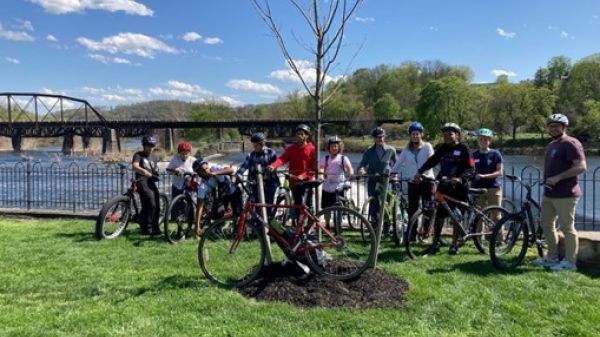
Each month, NAAEE shares narratives from the CEE-Change Fellows as they implement their community action projects and work to strengthen environmental education and civic engagement capabilities, all supporting the mission of cleaner air, land, and water. Join us on their journey! The Civics and Environmental Education (CEE) Change Fellowship is NAAEE’s newest initiative to support leadership and innovation in civics and environmental education in North America. This ee360+ program is a partnership between NAAEE, U.S. EPA, and the Cedar Tree Foundation.
Last August, I arrived at the CEE-Change Leadership Institute at the National Conservation and Training Center (NCTC) as a bundle of nerves but with a clear vision for my Climate Action Project (CAP). I wanted to establish a network of colleges in Pennsylvania’s Lehigh Valley that would collaborate on environmental action and civic engagement as a major component of my project. Many of the colleges in the area already do such work through degree programs, institutional centers, and student clubs. But their lack of coordination and communication, I suspected, was leading to inefficiencies and duplicated efforts that a consolidated network might correct. Creating this network seemed like it was worth a try as the CEE-Change Fellowship is a space for experimenting with new strategies.
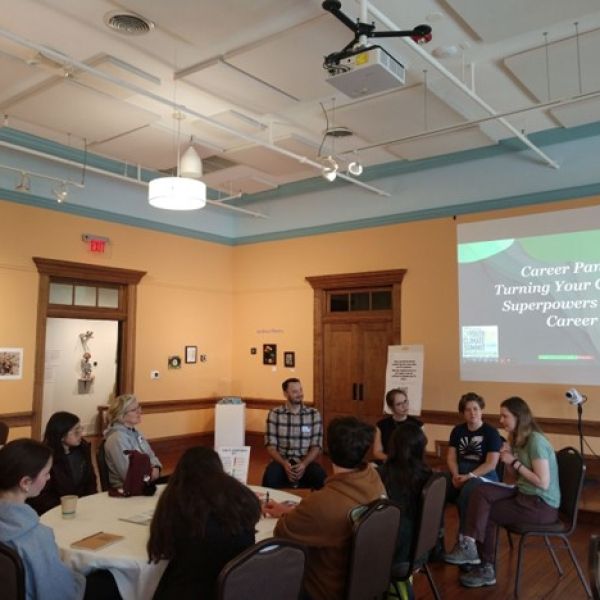
CEE-Change Fellows Jeff Geist, Caroline Nickerson, and Hannah Barg serving as panelists in a climate careers session moderated by Maggie Beetstra at the recent Lehigh Valley Youth Climate Summit. Photo credit: Kate Semmens, The Nurture Nature Center
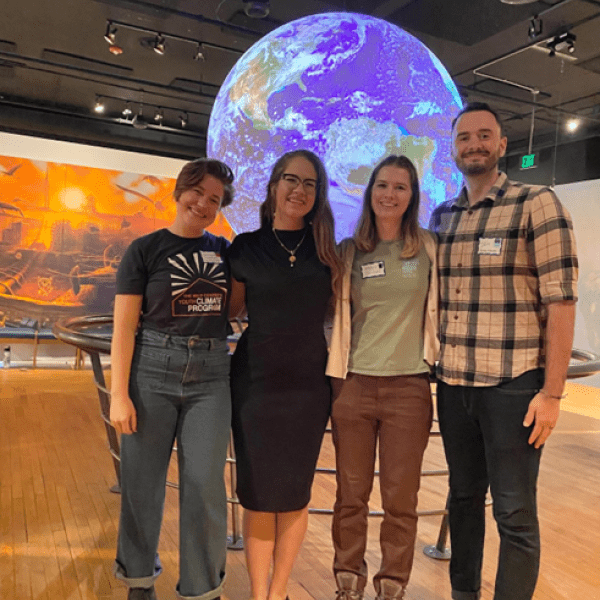
CEE-Change Fellows Hannah Barg, Caroline Nickerson, Maggie Beetstra, and Jeff Geist gather in front of the Science on a Sphere ® at the recent Lehigh Valley Youth Climate Summit. Photo credit: Madeline Squarcia, The Nurture Nature Center
What I realized quickly at NCTC, however, was that I had failed to do my homework before designing my CAP. I hadn’t gone to the colleges in the area beforehand and asked basic questions. Has something like this been tried before? Do colleges want to collaborate with each other? What is each campus’ culture around environmental topics and civic engagement?
To say that I was embarrassed by my oversight would be an understatement. Here I was, sitting in a room with a group of exceptional environmental educators and thought leaders, and I had designed a project for colleges without learning about the wants and needs of the colleges. It only exacerbated my insecurities about being selected for the fellowship as a social science researcher rather than an educator. Once I moved past the initial embarrassment, though, this mistake made me reflect on the frequency with which I have seen this same process happen in the research space. I have so often seen researchers, driven by research questions and curiosities, who fail to get community buy-in, create inclusive research practices, and work collaboratively with communities to ensure that their research is useful and answers questions that communities actually want answered. This subtle but essential mental shift has left a profound impact on me and is something that I will prioritize moving forward in my work.
Reassessing and Doing The Work
This realization led to the redesign of my CAP to be more responsive to the colleges and communities I was trying to serve and better capitalize on my skills. Rather than jumping straight into creating a network, a large portion of my CAP became a needs assessment of local colleges. Using my qualitative research background, I interviewed students, faculty, and staff at six Lehigh Valley colleges. I created an inventory of academic programs, campus centers, clubs and organizations, and campus initiatives. I asked questions about campus culture around environmental issues and civic engagement, if there was interest in cross-campus collaboration, and how local, external organizations might support the colleges in their efforts. I learned that multiple cross-campus collaborations have been attempted but were largely unsuccessful, that not all colleges are in the same place in their sustainability-related efforts, and that there was strong interest in an external organization serving as a resource, convener, and ally.
The colleges were responsive to trying again to create a network, but I now have other actionable steps to help the colleges that I know will receive better reception from the schools because they helped shape the work. Rather than jump into creating an entirely new network, next steps can capitalize on the colleges’ existing interests and strengths to make forward progress. Some possible paths forward that emerged through the interviews included a cross-college student art show with an environmental focus, community events co-planned by student organizations at multiple colleges, and facilitated conversations between the colleges. Representatives of the colleges seemed appreciative that someone was willing to listen to them, learn what they are doing, and hear about their challenges and future plans. The conversations made me hopeful that regularly checking in and continuing to build relationships will result in meaningful progress.
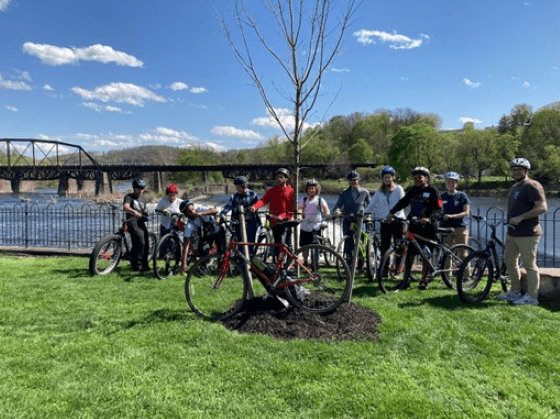
A group of youth gather near the confluence of the Lehigh and Delaware Rivers during a bike parade to mark the end of the recent Lehigh Valley Youth Climate Summit. Photo credit: Nella Panella, Community Bike Works
Takeaways
Doing community-based climate education and civic engagement work requires relationship-building, trust, and time. It also requires the participation of people with all different backgrounds, including ones like mine, to produce meaningful, actionable outcomes. The CEE-Change Fellowship and doing my CAP have clearly illustrated the importance of taking the time to truly listen and not project my interests and perceptions onto others. This lesson has only made me a better researcher, educator, and community member.
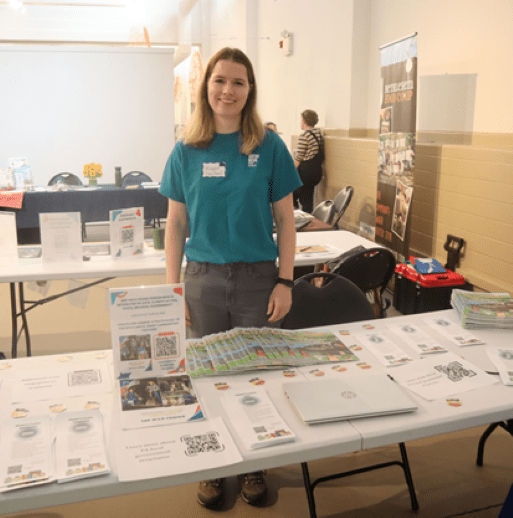
Maggie Beetstra showcasing some of her civic engagement materials before sharing them with youth at the recent Lehigh Valley Youth Climate Summit. Photo credit: Keri Maxfield, The Nurture Nature Center